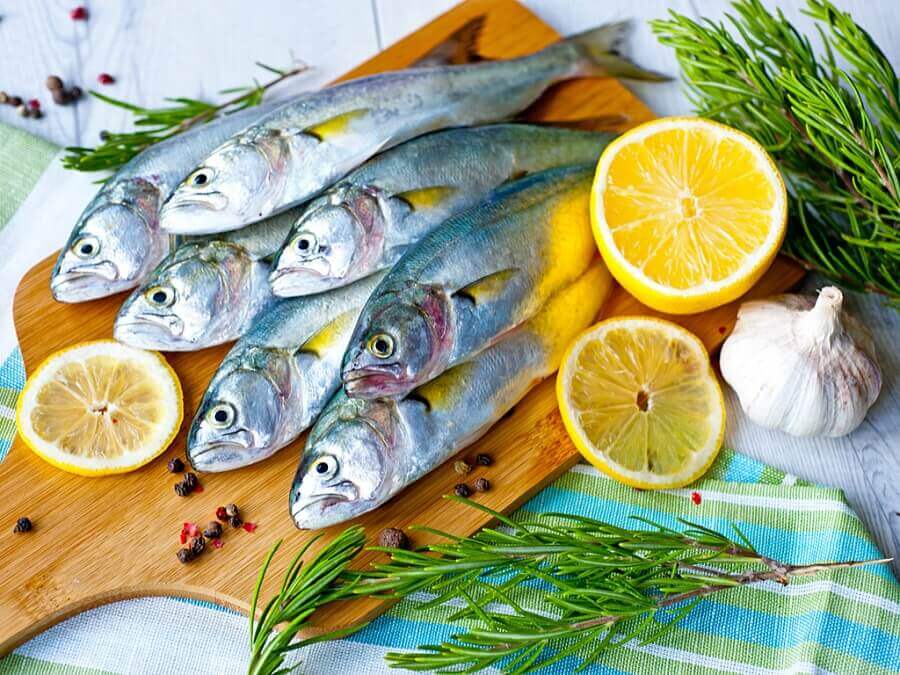Diet and Recommendations for Ankylosing Spondylitis


Written and verified by the nutritionist Saúl Sánchez Arias
Ankylosing spondylitis is a disease associated with arthritis that affects the spine. This condition causes inflammation and swelling between the vertebra, which results in disability and pain. You can treat it with medication, but a good diet is also key. Keep reading to learn more about the diet and recommendations for ankylosing spondylitis.
You should know that you can prevent many rheumatic and inflammatory processes by improving your lifestyle habits. For example, regular exercise, good rest and a balanced and varied diet are essential.
Diet for ankylosing spondylitis
Like we previously mentioned, ankylosing spondylitis is a condition that causes inflammation and degeneration of cartilage. When it comes to this disease, it’s vital to get the right number of certain ingredients. That’s because it will help prevent the progression of your symptoms.
Also, there are some compounds, like omega-3 fatty acids that are anti-inflammatory. According to a study published in Nutrition, they can improve the effectiveness of arthritis treatment by reducing pain and keeping the condition from getting worse.
In addition, it’s important to get the right amount of calcium. According to research published in Nutrients, this mineral guarantees good bone and joint health. However, your body can’t always assimilate calcium well at an intestinal level. Therefore, it’s important to ensure you’re eating a variety of foods to help your metabolic processes.
Keep reading: Omega-3-Rich Fish That You Should Start Eating
Food recommendations for ankylosing spondylitis
Now, we’re going to share some foods that can help you treat and prevent ankylosing spondylitis. If you regularly include them in your diet and you suffer from this disorder, you might notice some improvement in your symptoms.
Bluefish
Bluefish contain a lot of omega-3 fatty acids. As we previously mentioned, these fatty acids can help modulate and alleviate your inflammatory mechanisms. As a result, they can help you efficiently manage this condition. In addition, they’re useful for preventing acute episodes of pain.

Turmeric
Turmeric has a phytonutrient called curcumin inside of it. This phytonutrient has positive effects on inflammation control in the body. According to research published in the Journal of Medicinal Food, turmeric is effective in helping to treat all the processes related to arthritis.
Spicy foods
One of the characteristics of spicy foods, like chili, is that it contains a compound called capsaicin. Although these foods may not be suitable for delicate stomachs, they also have the power to reduce inflammation in the body. In addition, they can alleviate pain.
Normally, people will apply capsaicin topically through creams. However, we also recommend taking it to help with ankylosing spondylitis.
Foods we don’t recommend for ankylosing spondylitis
Just like there are products and nutrients that can help relieve your symptoms, there are others that can make them worse. This list will serve as a guide to help you create a nutritional plan.
Sweets
High amounts of simple sugars can cause inflammation. This is due to the increase in blood glucose levels which makes the pancreas have to work harder.
Consuming too much sugar may increase your pain and stiffness. Therefore, you should avoid it as much as possible.
Sausages
Sausages tend to contain additives. While many of them are safe in the medium term, they can still cause an increase in inflammation. Because of that, you should avoid them whether you’re following a regular diet or our recommendations for ankylosing spondylitis.

Ultra-processed foods
In general, you should eliminate any heavily processed foods. These foods contain a lot of trans fatty acids.
These acids can worsen your state of health and increase your inflammatory mechanisms. As a result, they can increase your pain.
Alcohol
Alcohol intake increases the workload on your liver because this organ will have to metabolize and eliminate the alcohol later. This causes an increase in general inflammation, which can be counterproductive when it comes to ankylosing spondylitis, or any other type of arthritis.
Conclusion
As you can see, improving your dietary habits is the key to keeping this condition from worsening. In addition, we recommend increasing the amount of fresh foods that you eat, like vegetables and fish. Also, another one of our recommendations for ankylosing spondylitis is that you should reduce the amount of ultra-processed foods you consume.
It’s important to avoid alcohol and practice physical activity on a regular basis because it will keep your body functioning properly. In addition, you should get optimal rest at night since this is the time when your body will repair any damaged tissues.
All cited sources were thoroughly reviewed by our team to ensure their quality, reliability, currency, and validity. The bibliography of this article was considered reliable and of academic or scientific accuracy.
- Gioxari A, Kaliora AC, Marantidou F, Panagiotakos DP. Intake of ω-3 polyunsaturated fatty acids in patients with rheumatoid arthritis: A systematic review and meta-analysis. Nutrition. 2018 Jan;45:114-124.e4. doi: 10.1016/j.nut.2017.06.023. Epub 2017 Jul 8. PMID: 28965775.
- Vannucci L, Fossi C, Quattrini S, Guasti L, Pampaloni B, Gronchi G, Giusti F, Romagnoli C, Cianferotti L, Marcucci G, Brandi ML. Calcium Intake in Bone Health: A Focus on Calcium-Rich Mineral Waters. Nutrients. 2018 Dec 5;10(12):1930. doi: 10.3390/nu10121930. PMID: 30563174; PMCID: PMC6316542.
- Daily JW, Yang M, Park S. Efficacy of Turmeric Extracts and Curcumin for Alleviating the Symptoms of Joint Arthritis: A Systematic Review and Meta-Analysis of Randomized Clinical Trials. J Med Food. 2016 Aug;19(8):717-29. doi: 10.1089/jmf.2016.3705. PMID: 27533649; PMCID: PMC5003001.
This text is provided for informational purposes only and does not replace consultation with a professional. If in doubt, consult your specialist.








